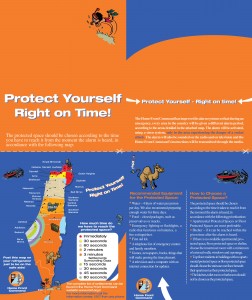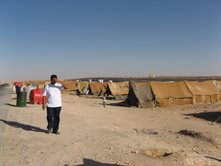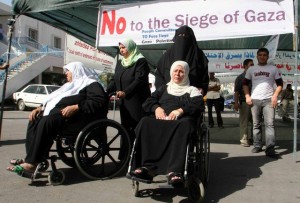
Zeek at Jewcy.com, June 29, 2009
I was walking down Carlebach Street when the wailing air raid siren announced the biggest civil drill in Israel’s history. Though I’d timed a morning interview around it, (who wants to pause for two minutes of alarm?), I was otherwise unprepared. Unsure of what to do with myself, I stopped and stood at the edge of a sidewalk café, under the shade of the awning. I was still. I listened. The sound was barely audible, drowned out by the noise of construction and late morning traffic. I looked to the people around me for cues. Their conversations continued, coffees were sipped, cigarettes puffed.
A waitress, her blonde hair pulled into a tight ponytail, pointed to an underground parking garage across the street and reminded us that we were to head to the nearest “protected space.”
Not that we needed the reminder. On the heels of Netanyahu’s induction, most homes received a pamphlet accompanied by a colorful magnet: a map of Israel, carved into color-coded regions, edged by cheerful images—splashing dolphins, dancing camels, and a smiling skier in snow-covered Golan Heights. That skier is in a red zone—according to the key, if he hears a siren he must slide to a shelter immediately. Tel Aviv is colored like a ripe orange. In the case of a missile attack, I will have two minutes to get somewhere safe.








